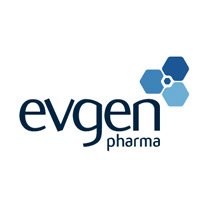Evgen Pharma Plc (LON:EVG) Chief Executive Officer Dr Stephen Franklin caught up with DirectorsTalk to provide a summary of the Evgen proposition following their first interim results as a quoted company
This is Stephen Franklin Chief Executive of Evgen Pharma, trading on the AIM market of the London Stock Exchange under ticker EVG. These interim results are our first as a quoted company so I’d like to take this opportunity to summarise the Evgen proposition.
Evgen’s proprietary Sulforadex technology means we can synthesise and stabilise a molecule called sulforaphane. Sulforaphane is widely known as an anti-cancer agent and it’s the principal active component that is released in the body when brassica plants such as broccoli are consumed. Sulforaphane has been shown to have anti-cancer and neuroprotective qualities in a wide range of diseases, for example breast cancer, prostate cancer, multiple sclerosis and autism. It is indeed a very promising therapeutic, however there are problems. Problem number one – you cannot get sufficient nor reliable doses of sulforaphane from any dietary source. The good news however is you can chemically synthesise pure sulforaphane but that runs you straight to problem number two. When you synthesise sulforaphane, it is a liquid and incredibly unstable so it needs to be stored at minus 20, this has prohibited its development.
The Evgen breakthrough is important because we can now synthesise and stabilise sulforaphane in a solid dose format to pharmaceutical standards, put simply we now have the pill format which is stable at room temperature, that can deliver concentrated pure sulforaphane, meaning it can now be robustly tested in the clinic.
The highlights in the year to date:
We generated positive data on lead compound SFX-01 as an adjunct to hormone therapy in patient-derived tissue from early and late stage breast cancer patients. This Senograph data was presented to the American Association of Cancer Research in April 2015.
In October, we welcomed Dr Alan Barge as non-executive director, he’s a former head of oncology at AstraZeneca.
We recently signed an exclusive worldwide licence from the Spanish National Research Council at the University of Seville in Spain giving us access to 60 new molecules which we’ll appraise in due course, all based on the core sulforaphane structure and all requiring our stabilisation technology.
In terms of the figures, the total comprehensive loss for the period was £1.2 million and the cash position at the 30th September 2015 was £1.8 million following a £2 million pre-IPO fundraising in August 2015. The IPO placing in October raised £7 million, both the pre-IPO and the IPO rounds were enlarged to accommodate demand, this was very pleasing. The company is now fully funded to complete two Phase II studies on lead product SFX-01 and to support further pre-clinical work in multiple sclerosis.
The first Phase II trial on SFX-01 is in an orphan indication associated with a type of stroke called subarachnoid haemorrhage, this trial is already registered on the ClinicalTrials.gov website and the objective is to start patient recruitment in the first half of 2016, the calendar year, we will announce that event when it happens. The second trial is expected to start recruitment in Q3 of calendar year 2016, this trial is in metastatic breast cancer and as an adjunct to hormone therapy. Both trials are scheduled to complete by the end of the year 2017.
So to wrap up, sulforaphane is an exciting molecule with a huge literature base demonstrating anti-cancer and neuroprotective effects and Evgen Pharma Plc is unique in that we have the only sulforaphane-based pharmaceutical in the clinic. We have done the prudent thing of acquiring by in-licencing future variants of sulforaphane, this enables to both defend our lead product but to also start to consider how we may segment substantive therapeutic markets. So the concluding remark really is that we are set for an exciting year ahead and I’d like to thank our employees, our collaborators and the investors that are supporting us both as a private company and now a public company.

